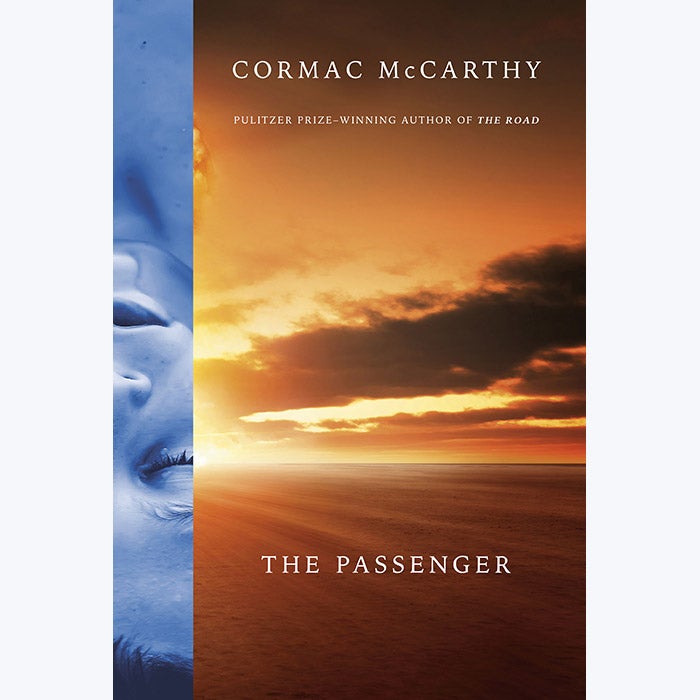The Grim Return of Cormac McCarthy
At 89, McCarthy is publishing two new novels, confused and confusing, arguing that life is brutal and meaningless. Why?
In Lily King’s novel Writers & Lovers, the narrator is asked, during an interview for a teaching job, what she thinks of Cormac McCarthy’s All the Pretty Horses, and she makes the mistake of being scrupulously honest. She replies that she “couldn’t get past the writing to enjoy the story, that he seemed to be alternating between imitating Hemingway and imitating Faulkner.” This response dismays her potential co-worker, but for much of the 1980s and 1990s, while McCarthy was building his reputation as the bard of American masculinity, many readers felt the same way. McCarthy’s late-life masterworks, 2005’s No Country for Old Men and 2006’s The Road, subverted this critique by harnessing and even subduing McCarthy’s oracular nihilism to no-nonsense genre-fiction plots. They also made him significantly more popular—The Road was even an Oprah’s Book Club pick—and were the subjects of ambitious Hollywood adaptations, one of which (2007’s No Country for Old Men) won the Oscar for Best Picture.
Now, with the publication of two new, linked McCarthy novels, The Passenger and Stella Maris, it’s time to dust off that caveat again. At first, The Passenger, published this week, seems poised to deliver a similarly transformative variation on the thriller, but it is not to be. Stella Maris, publishing in December, doesn’t even try. And while the Hemingway strain in McCarthy remains as evident as ever, Faulkner takes a back seat to more unlikely influences ranging from Don DeLillo and Thomas Pynchon to, weirdly, James Ellroy and even less reputable compatriots.
The Faulknerian touch mostly manifests in the central characters of the two novels, siblings Bobby and Alicia Western, who, in addition to having a flagrantly thematic last name, are also the children of a physicist who worked on the Manhattan Project and who never suffered a moment of troubled conscience over it. Instead, it’s his offspring who seem haunted by his apocalyptic guilt and, more tormentingly, by their incestuous love for each other, never consummated. The Passenger describes a series of events and encounters in Bobby’s life during the 1980s, while Stella Maris is a transcript of Alicia’s sessions with a psychiatrist in a sanitarium, shortly before she killed herself. During her interviews with the shrink, Alicia believes Bobby to be brain-dead following an accident in the course of his work as a Formula 2 race car driver in Italy. Partway through Stella Maris, it occurred to me that the events in The Passenger might be nothing more than the hallucinations or dreams of a comatose Bobby, which would explain a lot. Ultimately, however, it proved as impossible to reach a conclusion on this question as it is to come to any firm understanding of the novels overall.
This isn’t to say that the two books—particularly The Passenger—lack indelible passages. Early in The Passenger, Bobby, living in New Orleans and working as a salvage diver, is part of a team hired to search a small plane that went into the sea off the Mississippi coast. They are told to look for survivors, an improbability they shrug off, but other things about the wreck seem unusual. McCarthy’s description of the divers silently making their way through a fuselage full of still strapped-in corpses is transfixing:
He kicked his way slowly down the aisle above the seats, his tanks dragging overhead.The faces of the dead inches away. Everything that could float was against the ceiling. Pencils, cushions, styrofoam coffeecups. Sheets of paper with the ink draining off into hieroglyphic smears.
In the cockpit, Bobby finds the co-pilot still belted to his seat but the pilot “hovering overhead against the ceiling, with his arms and legs hanging down like an enormous marionette.” Also, the black box is gone. Also, the plane seems completely undamaged. Back on the surface, Bobby and his buddy Oiler figure that someone has been to the wreck before them. “I’ll tell you what else,” Oiler says when Bobby presses him to discuss all this, “my desire to remain totally fucking ignorant about shit that will only get me in trouble is both deep and abiding. I’m going to say that it is just damn near a religion.” Bobby, being a Cormac McCarthy protagonist, has no use for religion and pursues the mystery for a bit. Then men with badges turn up to question him, explaining that there was one less body on the plane than there should have been. A passenger is missing. Bobby’s apartment gets tossed, then the rented room he decamps to gets tossed. Oiler is killed while working a job in South America.
The McCarthy of the 2000s might have stuck with this terrific premise and hung one of his bleak, relentless parables on its thriller skeleton. Later, Bobby takes a job on an oil rig in the Gulf of Mexico, dropped off by a helicopter just before the arrival of a ferocious storm. The crew is nowhere to be found. He wanders through deserted steel corridors as the wind roars outside, eating apricots out of a can and becoming increasingly convinced that someone else is there too, just out of sight. And then there are his father’s papers, compiled or collected while the old man was holed up a cabin in the Sierra Nevada, then stolen in a peculiar burglary in which nothing of conventional value was taken. It’s never quite clear what the men in suits want from Bobby, who eventually winds up on the lam from the IRS as well. Is it to do with the wreck or nuclear secrets or what?
McCarthy pointedly never develops any of these episodes into a story. Instead, Bobby has extensive conversations about machinery with other men; extracts a long account of a friend’s harrowing experiences in the Vietnam War; buys dinner for a transgender woman with whom he enjoys a courtly platonic friendship; visits his grandmother in Tennessee, where she still mourns the ancestral family home, submerged under an artificial lake in the 1940s as part of the Manhattan Project. He favors a researcher with a lengthy assessment of the major figures of quantum mechanics and string theory. He listens to a private detective’s explanation of how the Mafia was behind the assassination of John and Robert Kennedy (that’s the James Ellroy part). He hides out in an off-the-grid Idaho farmhouse for a frigid winter. Eventually he winds up living in a windmill on an island near Ibiza.
If this sounds random, it is, despite the recurring motifs of deep water, conspiracy, trauma, and the sins of fathers visited upon their children. Interspersed with Bobby’s adventures are chapters in which Alicia banters with the hallucinations induced by her apparent schizophrenia. These are led by a figure called the Thalidomide Kid, a wise-cracking dwarf with flippers instead of hands who, when not haranguing her with puns, organizes a series of phantasmal vaudeville acts for Alicia’s dubious benefit. These interludes recall the most tiresome parts of Thomas Pynchon novels, all bad jokes and stupid music hall songs. Stella Maris will recast the Kid as trying to save Alicia, but although he doesn’t resemble any recognizable symptom of mental illness, I can see why his visits would make her to want to kill herself.
The argument that life is one damn thing after another until you die is a solid one, and that indeed may be the point of Bobby’s pointless story. Stella Maris provides the philosophical underpinnings of this idea, although in Alicia’s view the human portion of the universe is not merely random: It is demonstrably getting worse and worse, with the atrocities made possible by her father’s work serving as Exhibit A. On a personal level, the tragedy of Alicia’s life is that the one thing she wanted—to marry Bobby and bear his child—has been denied because of a taboo that means nothing to her. While Bobby hangs out with a bunch of colorful French Quarter lowlifes who seem unfazed by his incestuous longing (they just think it’s a shame to waste your life on grief), Alicia takes a while to reveal her secret to her interlocutor, who is appropriately shocked. Most of their conversation, however, has to do with theoretical mathematics and its role in Alicia’s life.
McCarthy isn’t known for his convincing female characters. Alicia is no exception, but he’s conceived of her as so intellectually freakish that it hardly matters. At the heart of her suicidal impulses is a memory of a “waking dream” she experienced at the age of 11. In this vision, she peered through a peephole to see sentinels standing at a gate beyond which, she sensed, lay a malevolent presence. She knew then that “the search for shelter and for a covenant among us was simply to elude this baleful thing of which we were in endless fear and yet of which we had no knowledge.” Alicia calls this presence the Archatron, an invented word that appears in another dream description in McCarthy’s Cities of the Plain. This force appears to be something ancient but also increasingly manifested in the present, and responsible for the “grim eruptions of this century.” It is “an ill-contained horror beneath the surface of the world” and “a deep and eternal demonium” at the “core of reality.”
Never has McCarthy sounded more like H.P. Lovecraft, whose extravagant hopelessness is forever tipping over into camp. McCarthy’s fiction, too, sometimes threatens to become a parody of itself. At its best, it counters his nihilistic tendencies with the sheer thrill of narrative, arguing, in its way, that a sleek, relentless story, gorgeously told, offers pleasures enough for this world. These confusing, confused late-life novels don’t do that. Instead they’re overtaken by dissolution. McCarthy is 89. If he has really come to believe that our existence is utterly brutal and meaningless, why bother to write about it at all?





No comments:
Post a Comment